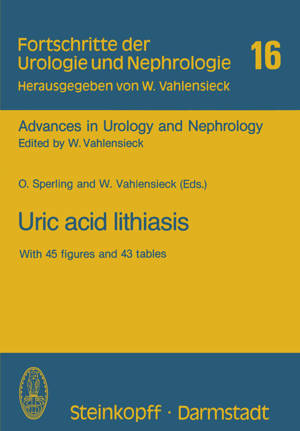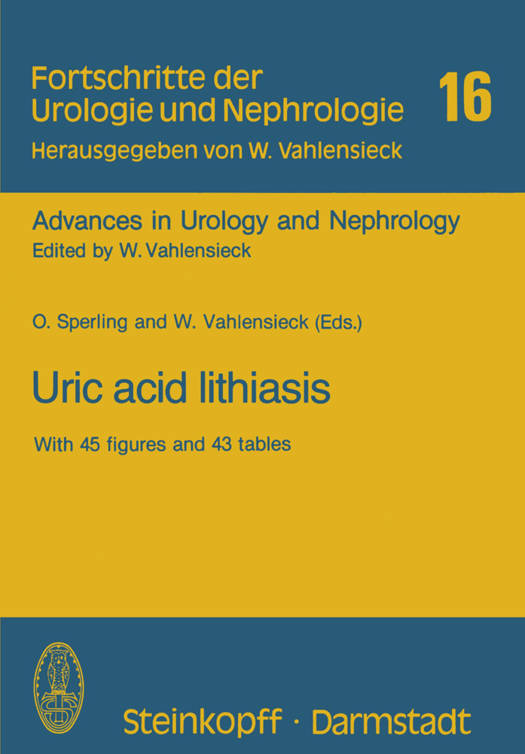
- Afhalen na 1 uur in een winkel met voorraad
- Gratis thuislevering in België vanaf € 30
- Ruim aanbod met 7 miljoen producten
- Afhalen na 1 uur in een winkel met voorraad
- Gratis thuislevering in België vanaf € 30
- Ruim aanbod met 7 miljoen producten
Zoeken
€ 105,45
+ 210 punten
Omschrijving
Kidney stones is a common and ancient disease. Yet, many questions concerning their etiology, treatment, and prevention are still open. The Harnstein-Symposien Bonn-Wien is an organization designed to bring together scientists from the various fields relevant to urolithiasis: medicine, urology, biochemistry, etc. In the framework of this organiza- tion an International Workshop was held in Tel Aviv on December 10 and 11 1980 to discuss the various aspects of uric acid lithiasis. Uric acid stones have been known to mankind for thousands of years. Urate-contain- ing stones were found in Egyptian mummies and in a three-thousand-year old mummy from Arizona. Evidently, with the constant increase in standard of living, associated with increased amount of purine intake, which we are facing in this century, the fre- quency of uric acid lithiasis is on the increase. In the second half of this century, signi- ficant progress has been made in the knowledge of the mechanisms of uric acid over- production, as well as in the understanding of the etiology, prevention, and tretament of uric acid stones. As a result, uric acid lithiasis can be prevented and when present it can be treated well. Moreover most uric acid stones can be dissolved in vivo. This workshop included reviews from some of the leading authorities on the various aspects of uric acid metabolism in man: biochemistry, pathology, renal handling, nutri- tion, etc., and these reviews and results of new studies are presented here.
Specificaties
Betrokkenen
- Auteur(s):
- Uitgeverij:
Inhoud
- Aantal bladzijden:
- 120
- Taal:
- Engels
- Reeks:
- Reeksnummer:
- nr. 16
Eigenschappen
- Productcode (EAN):
- 9783798505940
- Verschijningsdatum:
- 1/01/1981
- Uitvoering:
- Paperback
- Formaat:
- Trade paperback (VS)
- Afmetingen:
- 170 mm x 244 mm
- Gewicht:
- 217 g

Alleen bij Standaard Boekhandel
+ 210 punten op je klantenkaart van Standaard Boekhandel
Beoordelingen
We publiceren alleen reviews die voldoen aan de voorwaarden voor reviews. Bekijk onze voorwaarden voor reviews.











